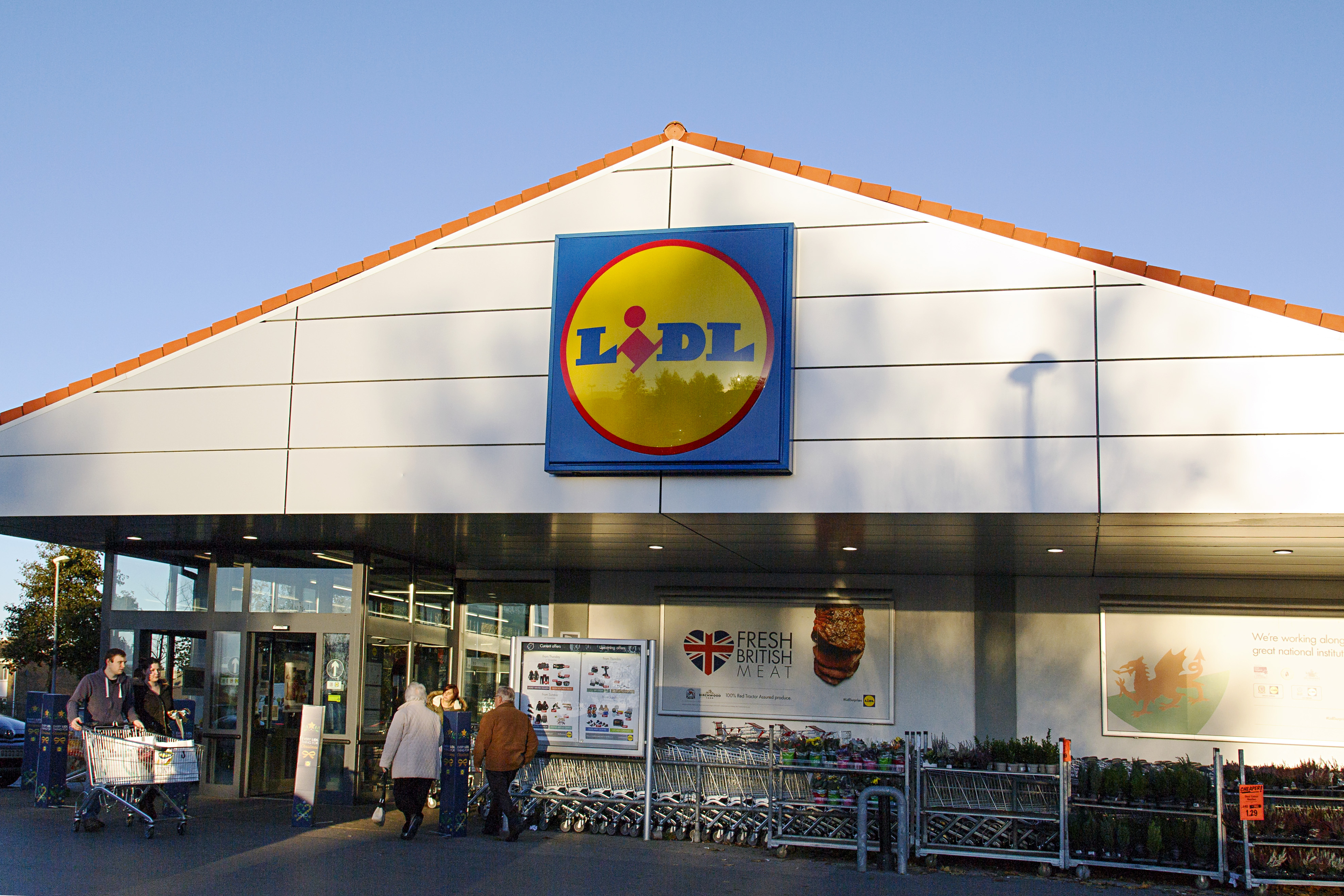
DISCOUNTERS Aldi and Lidl have captured a record share of the grocery market as the price of some staples rose by more than 5%, according to reports.
The two supermarkets’ combined market share passed 12% for the first time, accounting for almost £1 in every £8 spent on groceries, Nielsen’s latest sales figures show.
In the 12 weeks to February 25, Aldi’s sales grew 12% year on year and Lidl’s were up 9.1%.
Aside from the discounters, Iceland had the biggest rise in year-on-year sales, up 5.6%, while Morrisons saw the strongest increase among the “big four” – 1.9%.
Takings at the tills across all supermarkets were up 1.1%, boosted by inflation returning to food retailing in February, up 0.4% in the first rise since April last year.
Mike Watkins, Nielsen’s UK head of retailer and business insight, said: “Whilst the retail landscape is very different to 25 years ago when Aldi entered the UK, discounter market share is higher than when Kwik Save was at its pomp as the original discounter.
“The difference today is that Aldi and Lidl aren’t solely associated with low-priced brands, having been very astute at promoting the quality and price of their private-label range to appeal to a wider array of shoppers.
“Aldi and Lidl’s momentum continues due to new stores opening and the average shopper spending more – testament to the wider and higher quality of products available.”
Meanwhile, figures from Kantar Worldpanel for the same period show supermarket sales growing at their fastest rate since June 2014 – up by 2.3% compared with the same time last year – as the price of staples such as butter and tea rose by more than 5%.
Lidl became Britain’s fastest-growing supermarket during the past 12 weeks, with sales up by 13%, while Aldi grew almost as quickly, increasing sales by 12.9% to reach a record market share of 6.3%, according to Kantar’s analysis.
Fraser McKevitt, head of retail and consumer insight at Kantar Worldpanel, said: “Like-for-like inflation has doubled since last month to stand at 1.4% during the past 12 weeks. However, when placed in their longer-term context, these price increases are still fairly minimal.
“Staples such as butter, tea and fish all saw prices rise by more than 5% during the past 12 weeks, as fruit and vegetables – many of which are imported – also saw an uptick in price.
“However, it’s important to point out that inflation is still far from universal, with prices actually falling across a number of categories including crisps, bacon and eggs.”
He added: “While consumers may be starting to feel a very slight pinch, increased inflation has led to overall market growth. Simultaneously, combined sales at the UK’s four largest supermarkets increased by 0.5% year on year.
“This is a timely reminder that, despite the huge interest in the discounters during recent years, the big four remain a force to be reckoned with: they still hold just over 70% of the market, with almost 99% of the population shopping in a Tesco, Sainsbury’s, Asda or Morrisons during the latest quarter.”
Kantar’s figures also show Morrisons growing ahead of the market with a sales increase of 2.6%, signalling its fastest growth in five years.
Tesco increased sales for the sixth period in a row, although this was not enough to stop its market share slipping by 0.5 percentage points to 27.9%, while Asda was the only retailer to see sales fall during the past 12 weeks, albeit a decline of just 0.8%.

Enjoy the convenience of having The Sunday Post delivered as a digital ePaper straight to your smartphone, tablet or computer.
Subscribe for only £5.49 a month and enjoy all the benefits of the printed paper as a digital replica.
Subscribe